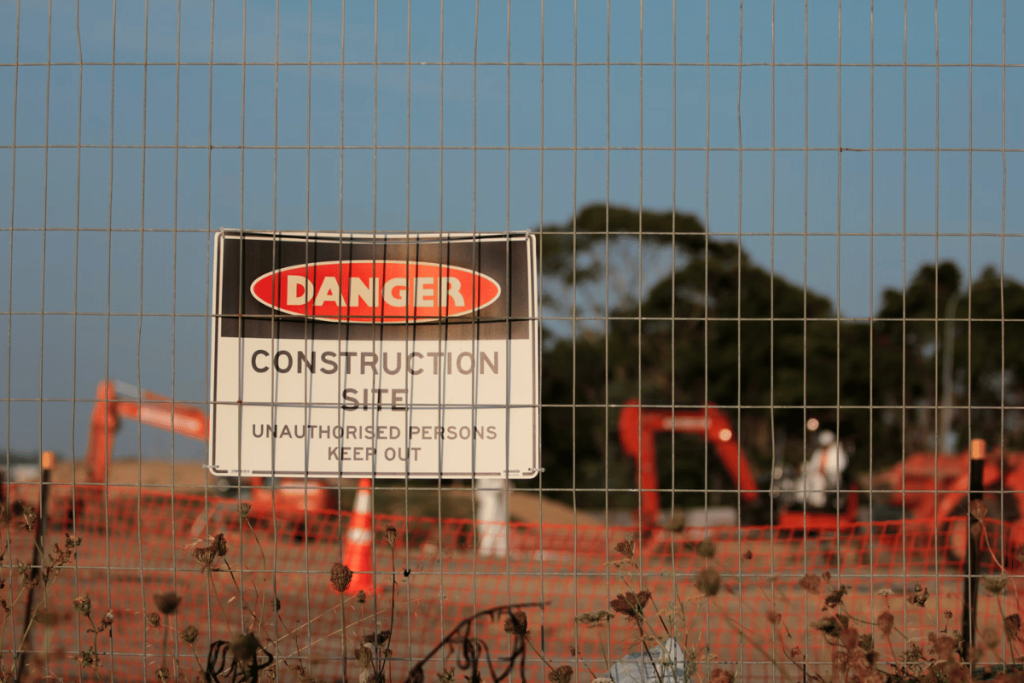How to Value a Construction Company (Correctly) - Ultimate Guide
At first, learning how to value a construction company might seem as complex and nuanced as building a skyscraper. Still, once you understand the fundamentals, it should feel as straightforward as laying the foundation.
This guide is a simplified explanation that will ease confusion and provide you with clear insights and actionable steps.
Warren Buffet once said -
Price is what you pay; value is what you get.
Read on if you want to discover how to get the most value for your investment in a construction company.

Before Starting
Before diving into the nuances of valuing a construction company, let’s address some frequently asked questions:
What multiples do construction companies sell for?
Construction companies generally sell for an average EBITDA multiple of 9-11x. Factors such as owner dependence, specialized contracts, and complex operations can affect these multiples, especially for smaller firms.
However, those specializing in a niche or demonstrating strong leadership in their sector can command higher construction company valuation multiples.
What is the book value of a construction company?
The book value of a construction company is its total assets minus its total liabilities, as recorded in its financial statements. From an accounting perspective, this value represents the company's net worth or equity.
What is the average profit margin for a construction company?
The average profit margin for a construction company typically ranges between 2% to 10%. This margin can vary significantly based on factors such as the type of construction work, the company's size, location, efficiency, and market conditions.
Specialty contractors and firms with strong management often achieve higher margins of 15% to 20%.

Factors Affecting the Value of a Construction Company
To assess a construction company’s value and predict future success, understand the following influencing factors:
Industry-specific factors
These factors highlight the company's distinct industry position and operational effectiveness. They may seem intangible but are highly valuable.
Niche: Specialization areas like high-end residential or large-scale commercial projects significantly influence valuation.
Reputation: A reputation for excellence and reliability attracts more business and increases service pricing.
Portfolio: A diverse portfolio with challenging or high-profile projects shows versatility and capability, boosting the company’s value.
Client relationships: Higher valuations are common for companies with repeat business from reputable clients or long-term contracts.
Regulatory and safety compliance: If your company is committed to safety and adherence to regulations, its reputation will improve, and it will have more appeal, especially for risk-averse clients.
Financial performance indicators
The following indicators reveal the company's financial health and potential to thrive in different economic conditions.
Revenue growth: Steady revenue growth reflects the desired ability to increase income consistently.
Profit margins: Maintaining profit margins indicates effective management and operational efficiency, and higher-than-average margins suggest a competitive edge.
Cash flow: Strong cash flow denotes stability and lower risk due to sufficient liquidity for operations, new projects, and unexpected expenses.
EBITDA: A high EBITDA signals the company's ability to generate cash through operational activities.
Balance sheet strength: A strong balance sheet with substantial assets, real estate, and cash reserves, coupled with manageable debt levels, shows the company’s capacity for growth and financial obligations.
Market conditions and trends
A company doesn’t exist in a vacuum, and its value is significantly influenced by:
Construction industry health: A robust real estate market, skilled labor shortages, or rising material costs directly impact industry health and, subsequently, a company's value.
Regional demand: Companies in fast-growing urban areas or regions with significant infrastructure development may experience increased demand, enhancing their growth potential and value.
Competition: Intense competition can lead to price wars and reduced margins.
Emerging trends: Adopting trends (e.g., sustainable building) or advanced technologies (e.g., BIM, prefabrication, modular construction) can open new markets for the company and differentiate it from competitors.

Methods of Valuing a Construction Company
Valuing a construction company involves various methodologies, each offering unique perspectives on the company's worth.
The chosen method should align with the company's operational nature, financial health, and valuation purpose.
Earnings-based Valuation
This approach focuses on a company's profitability, which is often considered the most direct indicator of financial health and future potential.
However, valuing construction companies based on earnings involves looking beyond mere revenue. You’re assessing the true earning power of a company after accounting for all operational costs and investments.
What is a good EBITDA for a construction company?
The concept of a good EBITDA (Earnings Before Interest, Taxes, Depreciation, and Amortization) can vary widely. As a broad guideline, a healthy construction company might have an EBITDA margin anywhere from 5% to 15% or more, depending on the following:
Company size
Market or region
Economic climate
A good EBITDA for a small local construction firm will differ from one for a large multinational construction company.
Is it better to value a company using a revenue or EBITDA multiple?
The choice between revenue and EBITDA multiples depends on the company's financial stability and industry norms.
EBITDA multiples are often favored for their focus on profitability. However, revenue multiples might provide a clearer valuation perspective for rapidly growing companies.
Asset-Based Valuation
An asset-based valuation offers a clear picture of a company’s worth based on its tangible and intangible assets. Because of that, it’s useful for companies with significant physical assets or in liquidation scenarios.
The net asset value (NAV) method stands out of the different approaches under the asset-based valuation umbrella.
The NAV method determines a company's net worth through a detailed assessment of its assets and liabilities. This method offers a financial health snapshot at a specific time, and the net asset value formula is straightforward:
Net Asset Value = Total Assets − Total Liabilities
When applying this formula, it’s important to value each asset accurately. Remember that:
The method provides a clear, tangible value based on current assets and liabilities.
The NAV doesn’t fully capture the future earning potential or the value of intangible assets like brand reputation or client relationships.

Cash Flow-Based Valuation
The cash flow-based valuation method considers a company's current cash generation abilities and projects its future financial performance. By providing a perspective on the company’s viability and growth potential, this valuation helps with long-term strategic planning.
There are several key techniques for valuing construction companies under the cash-flow-based valuation method, with the Discounted Cash Flow method (DCF) being commonly used.
The DCF method relies on the principle that a dollar today is worth more than a dollar in the future due to its potential earning capacity. Here’s how the discounted cash flow formula can be expressed:

CF1 = The cash flow for year one
CF2 = The cash flow for year two
CFn = The cash flow for additional years
r = The discount rate
Applying the DCF method requires a:
Careful analysis of the company’s prospects, including:
Project pipelines
Market conditions
Operational efficiency
Judicious selection of the discount rate, as it significantly influences the valuation outcome.

How to Maximize the Value of a Construction Company
Maximizing the value of a construction company involves a strategic combination of:
Planning
Financial management
Operational efficiency
By focusing on these key areas, you can position your construction company for optimal valuation.
Execute strategic planning and positioning
Strategic planning and positioning enhance a company's attractiveness to potential buyers or partners by showcasing its unique value, future growth potential, and resilience to market changes. Key strategies include the following actions:
Leverage unique assets like expertise or patents to increase market value.
Develop a scalable business model to attract potential buyers.
Foster brand differentiation based on sustainability, innovation, or safety.
Adapt to market trends such as modular or green construction.
Form strategic partnerships with suppliers and contractors for competitive advantages.
Improve operational efficiency to reduce costs and increase profit margins.
Even the most skilled business owners need guidance with all these steps, and this is where the expertise of Mergers and Acquisitions (M&A) experts comes into play. ExitWise can connect you with seasoned M&A advisors specializing in the construction industry.
Schedule a call with us, and we’ll help you interview, select, and hire each M&A expert, advising you during the M&A process until your business is sold.
Meanwhile, you can try our valuation calculator to understand your company’s transaction value better.

Optimize financial performance and profitability
Optimizing your financial performance involves a multifaceted approach, focusing on increasing revenue and efficiently managing expenses and investments. You’ll have to take the following steps:
Optimize revenue streams by diversifying project portfolios and improving client relationships.
Control costs by managing direct and indirect expenses and implementing cost-saving measures.
Maintain healthy profit margins by balancing revenue enhancement with cost control, adopting efficient construction methods, and revising pricing strategies.
Conduct regular financial analysis to identify strengths and weaknesses and monitor key performance indicators.
Manage projects cost-effectively using tools and methodologies for timely, budgeted completion.
Allocate capital in high-return areas like new equipment, technology, workforce training, or business expansion.
Enhance operational efficiency
Operational efficiency is critical in the construction industry, where project timelines and resource management directly impact profitability. Here’s how to obtain it:
Streamline operations.
Adopt technology solutions.
Enhance workforce productivity.
Effective operational strategies improve the bottom line and make your company more valuable and attractive to potential buyers.
Enjoying this article? Consider saving these for later:

How to Sell a Construction Company
Selling a construction company requires understanding its value and preparing it for sale to appeal to potential buyers. The key steps in this process include:
Step #1: Determine the right time to sell
The time to sell can impact success, so this decision should be based on a combination of the following:
Market conditions: A strong market can mean higher valuations and more interested buyers. Understand the economic environment and the demand for services.
Company financial health: Selling when your company is financially strong can lead to a better valuation. Therefore, analyze your company's financial performance.
Personal goals: Consider your personal reasons for selling. Are you looking to retire or pursue other interests, or is it part of a strategic business move?
Step #2: Prepare financial documents and expect due diligence
Financial documentation provides a clear picture of your company’s financial health and is critical for due diligence conducted by potential buyers.
Prepare your detailed financial statements, including:
Income statements
Balance sheets
Cash flow statements
Tax returns
Asset inventories
Existing contracts or agreements
Equally important, expect an extensive due diligence process by potential buyers. They will scrutinize your financials, operational processes, legal compliance, and client portfolios.

Step #3: Implement key strategies to attract potential buyers
The following strategy will streamline the selling process and minimize dealing with incompatible goals and expectations or potential deal breakdowns:
Highlight competitive advantages like specialized skills, a strong customer base, or a robust project pipeline.
Streamline operations and address any inefficiencies.
Develop a comprehensive marketing plan to reach potential buyers.
Consider getting professional representation from a business broker or M&A advisor with experience in the construction industry.
Step #4: Onboard M&A experts
M&A experts, including investment bankers, M&A attorneys, and tax accountants, play a crucial role in:
Evaluating your company’s worth
Identifying potential buyers
Structuring the sale to maximize your returns
But how do you choose your advisors?
ExitWise simplifies this crucial step for you. We have extensive expertise in recruiting and managing M&A teams and are ready to assist in interviewing, hiring, and managing your M&A dream team.
Connect with ExitWise to onboard the M&A experts who will help you sell your business faster and for more money.
Conclusion
So, how do you value a construction company? The process is not an accident but the result of meticulous analysis and informed judgment.
Are you ready to translate your newfound understanding into tangible financial success? ExitWise can guide you to find the M&A experts who will ensure you receive a fair valuation and a profitable outcome.
Contact us to schedule your consultation and take the first step toward maximizing your construction company valuation.

